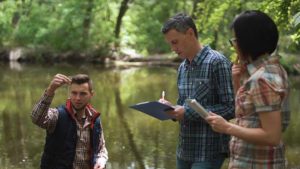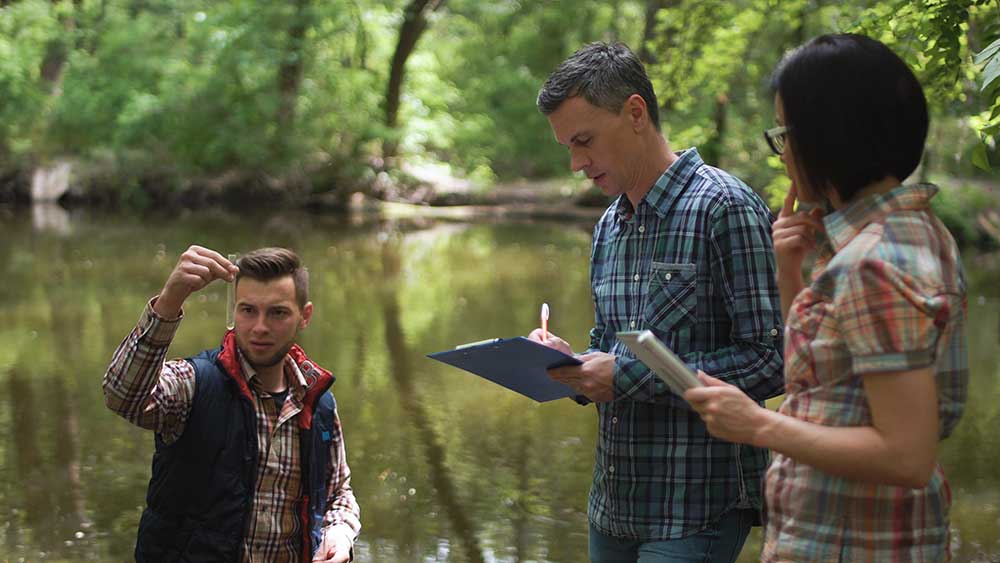Disclaimer: The information on our website is provided for general information purposes only. We make no representations or warranties of any kind, express or implied, about the completeness, accuracy, reliability, suitability or availability with respect to the website or the information contained on our website for any purpose. Any reliance on such information is therefore strictly at your own risk and we are not liable for any damages or losses arising out of or resulting from your reliance on any information contained on our website.
A water resource specialist is an expert in water supply, quality, and the regulations that ensure water quality and supply is met. Additionally, these experts may have various job titles such as hydrogeologists or water resources engineers. They may also be tasked to consult with others on water conservation and water quality issues. Also, they may even help develop plans to protect the water resource. Watch a video to learn what a water resource specialist does.
How to Become a Water Resource Specialist
To get your foot in the door, you would need a bachelor’s degree in water engineering or hydrology. During your program, you would learn how water is distributed, it’s properties, and the relationship with the environment. According to O*Net Online, over 40% of those surveyed also held a master’s degree. If you have yet to graduate high school, taking courses in math and science are the most beneficial as this will prepare you for college-level science and math courses. Visit the U.S. Geological Survey website USGS Water School for additional information about careers in hydrology.
Job Description of a Water Resource Specialist

A water resource specialist often checks the quality of a water source in a man-made or natural environment. Additionally, they investigate potential issues and craft a plan to clean the water if able. Their job also involves consulting on water storage and how to dispose of wastewater properly without contaminating the environment.
Water resource specialists may be involved in conservation efforts. This includes helping to develop plans to protect, clean, or use a water source in a sustainable manner. They must also be knowledgable on any state, federal, or local water laws and regulations.
Water Resource Specialist Career Video Transcript
We count on water resource specialists to make sure our water supply is clean, safe, and accessible so we can sustain ourselves and our daily activities. It may surprise you to learn about the complexity of our water supply regulation. Water resource specialists are called in to investigate many different situations. For example, if wastewater discharge appears to violate health and safety standards or proper permits are not in order or where water storage practices are called into question, these specialists are often needed.
To identify the source of the problem, they use mathematical equations that predict pollution levels in water and anticipate the behavior of sewer and storm systems. They may also create visual models to represent these results. Water resource specialists also monitor water supply sources to meet conservation goals so there will be a robust water supply in the future. A bachelor’s degree or higher in water resources engineering or a related field is the typical entry requirement. A background in science, technology, engineering, and mathematics is a plus.
Article Citations
National Center for O*NET Development. 11-9121.02. O*NET OnLine.
The career video is in the public domain from the U. S. Department of Labor, Employment and Training Administration.

